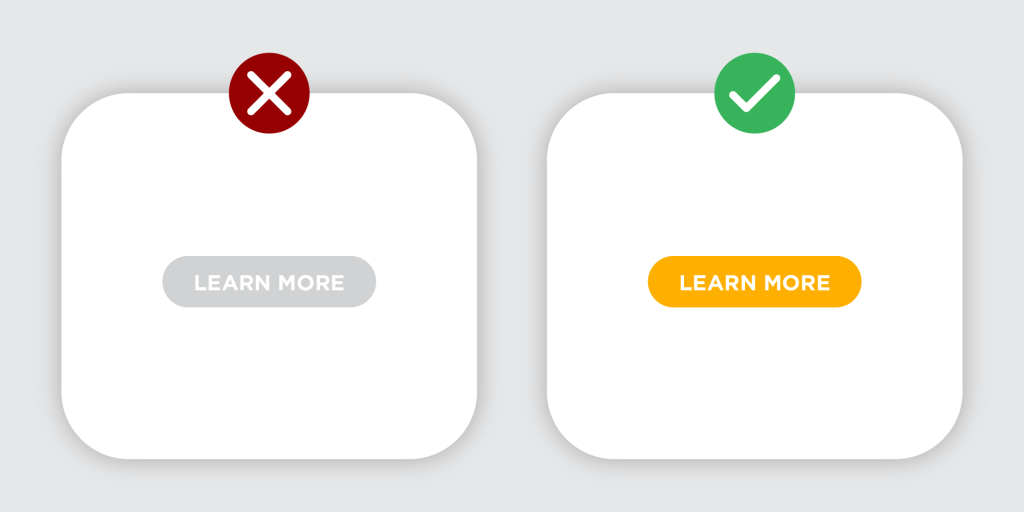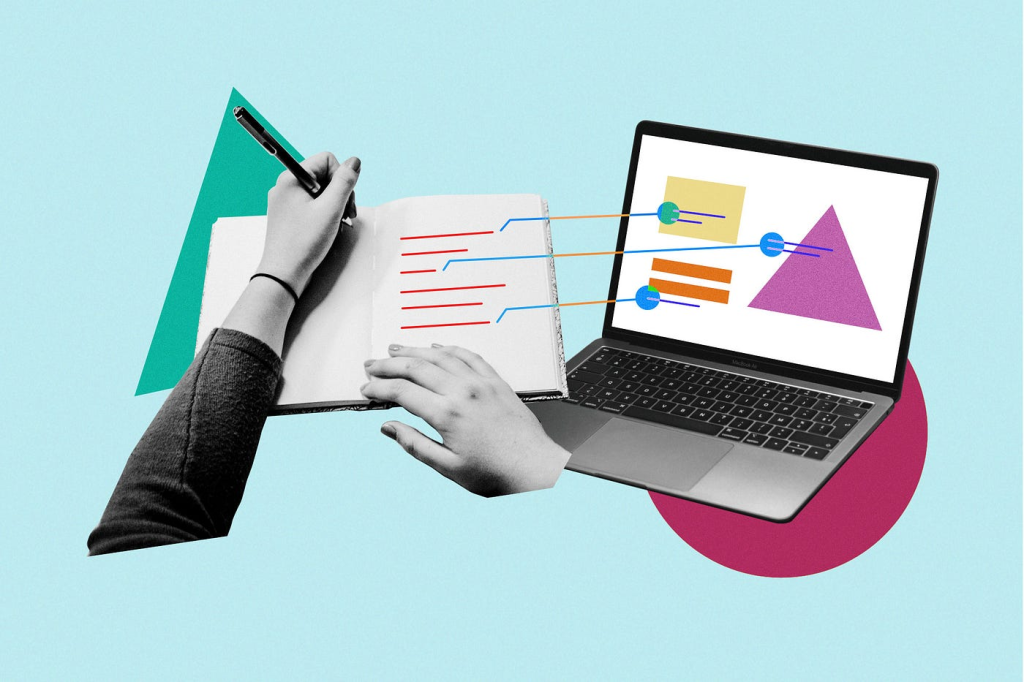Leveraging AI for Conversion-Optimized Designs [with 10 GPT Prompts ]
Have you ever felt the thrill of a perfectly designed website experience, where every click, every scroll seems to lead you effortlessly to where you want to be? Now, imagine if that seamless journey could be not just by chance but by design.
Quick Links
Can AI really help you optimise the design for conversions, whether on a website or mobile app? Let us start by looking at how AI can take your design strategy to a whole new level.
5 Ways AI Can Help Tailor Design Experience
Let’s explore transformative ways AI is redefining how we tailor design experiences to individual users.
- Understanding User Preferences and Behaviors
What if you have a crystal ball that could tell you exactly what your users want? That’s pretty much what AI does! It studies how users interact with your website or app, noticing the little things – like which buttons they click most or where they spend most of their time.
This isn’t just cool; it’s super helpful in figuring out what works and what doesn’t, helping you create a design that really resonates with your audience.
- Dynamic Personalization
This one’s all about making each user feel special. AI takes what it knows about a user and tweaks the design to suit them personally.
For instance, if someone loves blue and nature photos, AI can adjust your site’s theme to match those preferences when they visit. It’s like greeting a friend by setting up their favourite room ambiance – it makes them feel right at home!
Content is key, and personalized content is like the master key. AI looks at what each user likes or interacts with, and then shows them more of the same. So, if someone’s always reading tech news on your site, AI will show them more of that.
- Enhanced User Experience (UX)
User experience is king, and AI is like the ace up your sleeve to make it better. By analyzing heaps of data, AI helps you understand the nitty-gritty of what makes a user’s experience smooth and enjoyable.
This can mean reducing loading times, simplifying navigation, or even suggesting the most relevant content. It’s all about making sure your users have a seamless, enjoyable journey on your site.
- Predictive and Adaptive Interfaces
If your website or app could predict what a user needs next – that’s what AI does with predictive and adaptive interfaces. It’s always one step ahead, adjusting the layout or features based on what it thinks the user will do next.
This could mean highlighting a ‘Buy Now’ button for a shopper who looks ready to purchase or showing easy navigation options to someone who’s just browsing around.
- Feedback and Continuous Improvement
Finally, AI is like a never-sleeping guardian that’s always looking to make things better. It constantly gathers feedback, whether it’s direct user comments or subtle hints from their behavior.
Then, it uses this feedback to make improvements. It’s a cycle of constant learning and evolving, ensuring that your design stays fresh, relevant, and user-friendly.
So, there you have it – six amazing ways AI is helping tailor design experiences. Now, let us look into how AI is Infused in A/B Testing where AI significantly enhances the efficiency and effectiveness of optimizing design elements.
AI-Infused in A/B Testing for Designs
Let’s explore how AI-infused strategies are making test creation, targeting, analysis, and process streamlining more efficient and effective.
From acting as a multitasking assistant in generating test variations to playing the role of a data detective in targeting and analysis, AI is transforming the traditional approach to A/B testing, making it a smoother, faster, and more insightful process.
It’s time to dive into the areas where AI is enhancing the way we test and refine designs.
Efficiency in Test Creation
So, first up, we’ve got efficiency in creating tests. Think of AI as your super-smart assistant who’s great at multitasking. It can whip up multiple design variations in no time, which means you can test different ideas quickly and find out what works best. This is like having a fast-forward button, speeding up the whole process of figuring out the most effective designs.
Improved Test Targeting
Next, let’s talk about targeting. AI is like a detective that knows exactly who to show your tests to. It analyzes your audience and figures out the perfect group of users for each test.
This means you’re not just throwing darts in the dark; you’re strategically targeting the right people, which leads to more reliable and relevant results.
Advanced Analysis of Results
Moving on to analyzing results – this is where AI really shines. After running your tests, AI dives into the data and pulls out insights like a pro. It’s like having a data scientist on your team, sifting through the numbers and telling you exactly what they mean. This helps you understand not just which design won, but why it won.
Streamlining the Testing Process
Finally, streamlining the testing process is all about making things smoother and more efficient. AI automates the boring stuff, like setting up tests and collecting data, so you can focus on the creative side. It’s like having an extra set of hands doing the grunt work, making the whole process a lot easier and more enjoyable.
And there you have it – the impact of AI in revolutionizing A/B testing for designs is undeniable, offering speed, intelligence, and deep insights that traditional methods may miss. But how can we further harness this powerful tool in practical scenarios? This brings us to our next exciting segment GPT prompts for design optimization and A/B testing.
10 GPT Prompts for Design Optimization and A/B Testing
Let’s find out a series of prompts designed to leverage AI’s capabilities in various design contexts. These prompts are crafted to guide you through optimizing your designs for better user engagement and conversion rates, ensuring you make the most of AI’s transformative potential in your A/B testing strategies.
- Engaging Headline Creation
Prompt “Generate 5 compelling headlines for our main product page, designed for A/B testing to see which leads to higher user engagement and click-through rates.”
- Color Scheme Optimization
Prompt: “Suggest 3 different color schemes for a website’s call-to-action buttons and predict how each might impact click-through rates.”

(source: Hubspot blog)
- Layout Variation Testing
Prompt: “Create 4 distinct layout variations for a landing page, focusing on different element placements and sizes, ready for A/B testing to analyze user interaction and conversion rates.”
- Effective CTA Buttons
Prompt: “Propose 5 creative call-to-action button designs and texts for a service page, tailored for A/B testing to determine which combination yields higher user responses.”

(source: Admiral Digital)
- Image Impact Analysis
Prompt: “Develop a plan to test the impact of different hero images on a homepage, focusing on user engagement metrics and overall aesthetic appeal.”
- Navigation Ease
Prompt: “Suggest changes to the website’s navigation menu, creating 3 variations for A/B testing to improve user flow and access to information.”
- User Experience Personalization
Prompt: “Design an experiment to test personalized user experiences on a retail website, with variations based on user browsing history and purchase behavior.”
- Microcopy Variations
Prompt: “Write 5 different microcopy versions for a signup form, aiming to reduce form abandonment and increase conversions through A/B testing.”

(source: UX Collective)
- Mobile Responsiveness Test
Prompt: “Outline a strategy for A/B testing the mobile responsiveness of a website, focusing on load times, layout adaptability, and user interaction on different devices.”
- Engagement through Animation
Prompt: “Propose testing the use of subtle animations on key website elements to gauge their effect on user engagement and time spent on the page.”
In conclusion, these prompts offer a valuable toolkit for AI’s potential in design optimization and A/B testing. With these prompts, you can unlock AI’s transformative power in enhancing your web designs.
Conclusion
As we’ve explored the ways AI can enhance design experiences, remember that the key to success lies in balancing innovative AI strategies with a deep understanding of human-centric design.
If you’re seeking to elevate your digital presence with this cutting-edge approach, look no further than the best digital design agency. Let’s collaborate to create designs that are not only technologically advanced but also deeply resonate with your audience. Reach out to the best UI UX design agency in Mumbai and take the first step towards a future where design meets intelligence!
How to Use SEO and SEA Together in Search Engine Marketing
In digital marketing, search engine marketing (SEM) plays a critical role in improving online…
0 Comments10 Minutes
Content Marketing Growth Hacks: Real Shortcuts to Drive Traffic
Are you still lagging in content marketing? Sticking to these old strategies seems…
0 Comments10 Minutes
How to Build a Strong Local Following Using Social Media Marketing
In the days of likes, shares, and stories, local businesses have a golden opportunity to create…
0 Comments9 Minutes
Why WooCommerce is the Best Choice for Your Online Store?
WooCommerce stands out as a top option for anyone looking to build an online store. This platform…
0 Comments8 Minutes
How to Use AI-Powered SEO Tools for WordPress eCommerce
SEO is a critical factor in the success of any e-commerce WordPress store. As competition…
0 Comments11 Minutes
Why Short-Form Videos Are the Future of Content Marketing
Your Instagram customers spend over 50% of their time watching short-form videos and reels. Rather…
0 Comments12 Minutes
The Role of Digital Marketing in Business Growth
Online marketing touches every aspect of a business, whether it is initiating the idea or for an…
0 Comments3 Minutes
AI Meets Authenticity: Balancing Automation and Human Touch in Content Marketing
Is your brand starting to sound like a robot? In a world where algorithms write faster than any…
0 Comments8 Minutes
![Leveraging AI for Conversion-Optimized Designs [with 10 GPT Prompts ]](https://www.adlibweb.com/wp-content/uploads/2024/01/growtika-P5mCQ4KACbM-unsplash.jpg)







